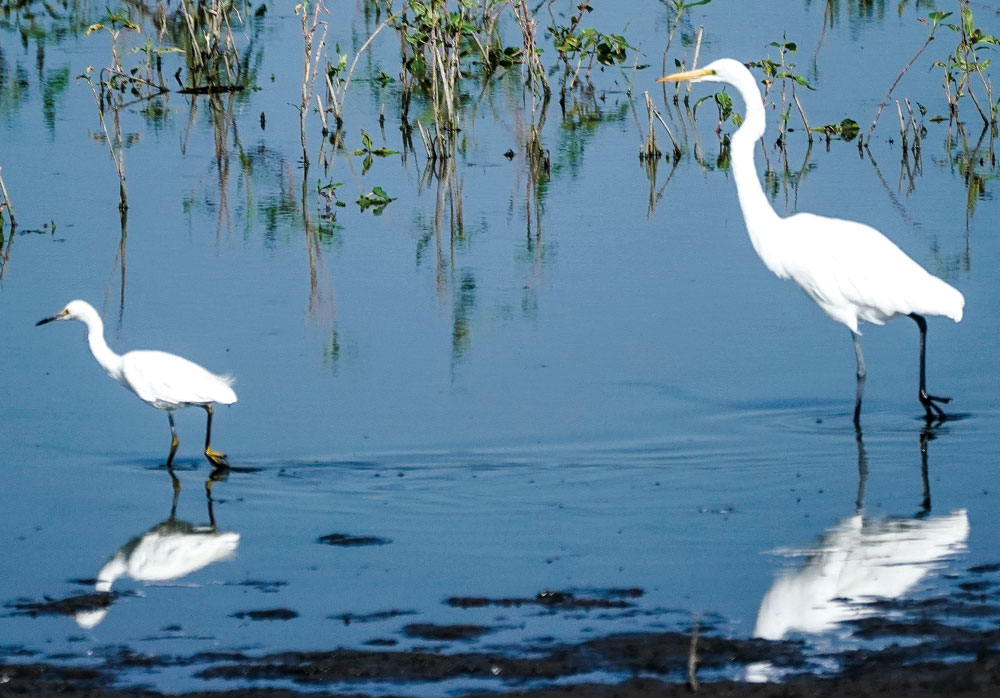
The Snowy Egret, left, and the Great Egret, right. Great Egret: Length 31 to 41 in. Weight 1.5 to 3.3 lb (average of 2.2 lb.) Wingspan 52 to 67 in.
Great Egret
The Great Egret is a large heron with all-white plumage, a yellow bill, and black legs and feet. It forages in shallow water or in drier habitats, feeding on fish, frogs, small mammals, small reptiles, crustaceans, and insects.
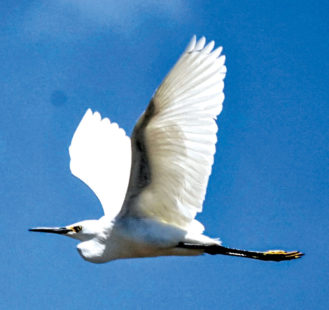
Snowy Egret: Length 22.1–26.0 in. Weight 13.1 oz. Wingspan 39.4 in.
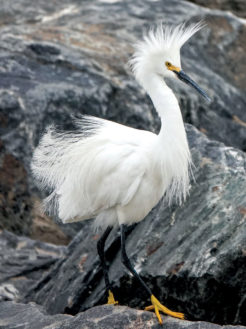
The Snowy Egret with breeding plumage.
Snowy Egret
The Snowy Egret is a medium-sized heron that shares the same habitat with the Great Egret but has different physical characteristics: it is smaller, it has a more slender bill, the bill is black (rather than yellow like the Great Egret’s); and the feet are bright yellow (rather than black.) Adults are entirely white apart from the yellow lores (the colored area between the long black bill and the eye.)
Snowy Egrets eat fish, crustaceans, insects, small reptiles, snails, frogs, toads, worms, and crayfish. The young are altricial (helpless) and covered with white down when first hatched. They leave the nest after about 22 days.
At one time, the plumes of the Snowy Egret were in great demand as decorations for women’s hats. They were hunted for these plumes, which reduced the population of the species to dangerously low levels.![]()
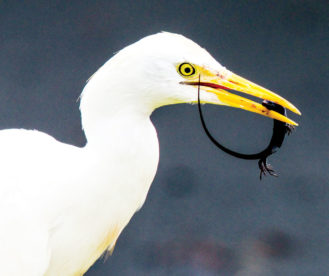
Cattle Egret: Length 18–22 in. Weight 9.5–18 oz. Wingspan 34.5–38 in.
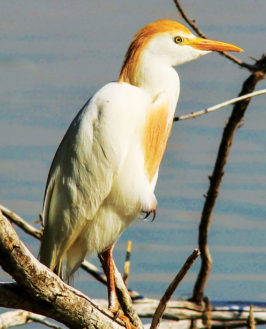
The Cattle Egret with breeding plumage.
Cattle Egret
The Cattle Egret has a relatively short, thick neck, a sturdy bill, and a hunched posture. The nonbreeding adult has mainly white plumage and a yellow bill. During the breeding season, adults are adorned with orange-buff plumes on the back, breast, and crown.
They often accompany cattle or other large mammals, catching insects and small vertebrate prey disturbed by these animals, as well as removing and consuming ticks and flies on the cattle. Their prey includes spiders, frogs, fish, crayfish, small snakes, lizards, earthworms, grasshoppers, crickets, beetles, and moths.
Bird Walks August 6 and September 3. Two options: 7:30–10am or 8–10am (choose a 2-hour or a 2.5-hour walk.) Both walks are free but you must RSVP at www.blufflake.org/birdwatching. All are welcome. Bring your own binoculars, or use one of their pairs. 11255 MLK Blvd. Search FrontPorchNE.com for “Bird Sightings” to see all the past bird stories and photos from George Ho. This column is generously donated by George Ho.



0 Comments